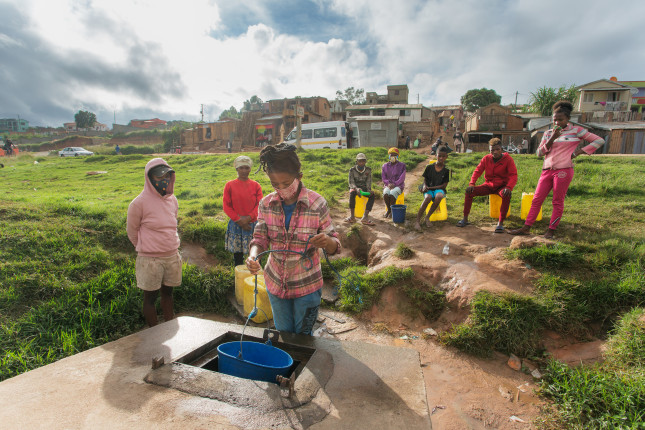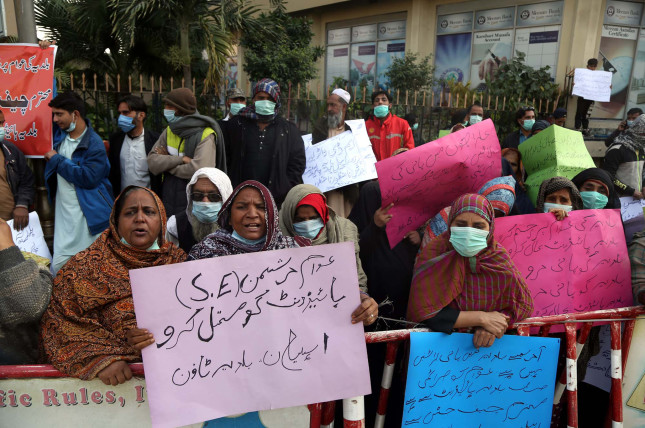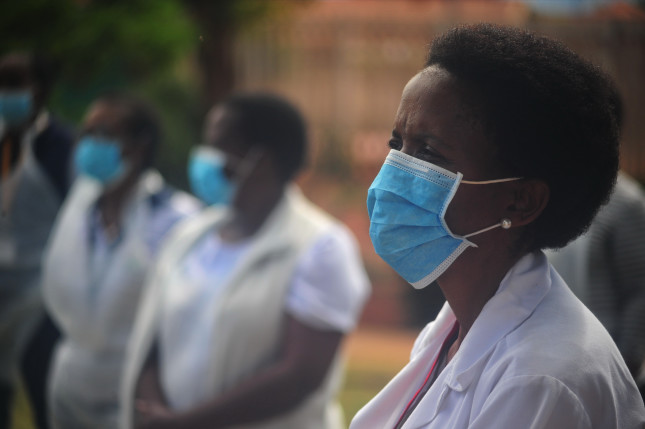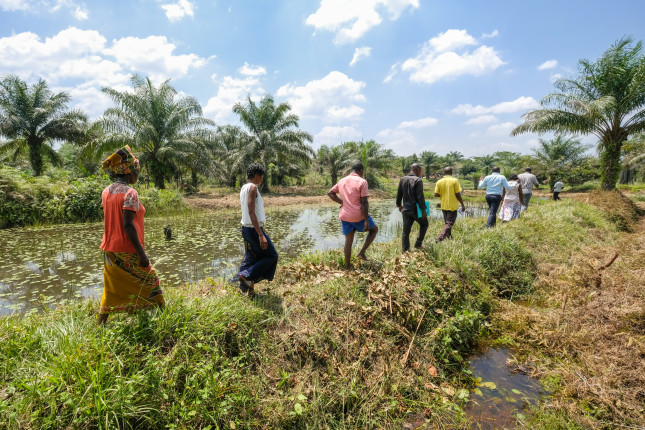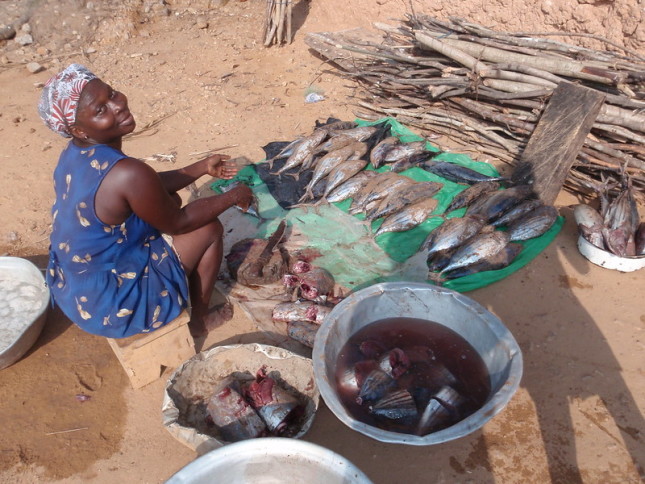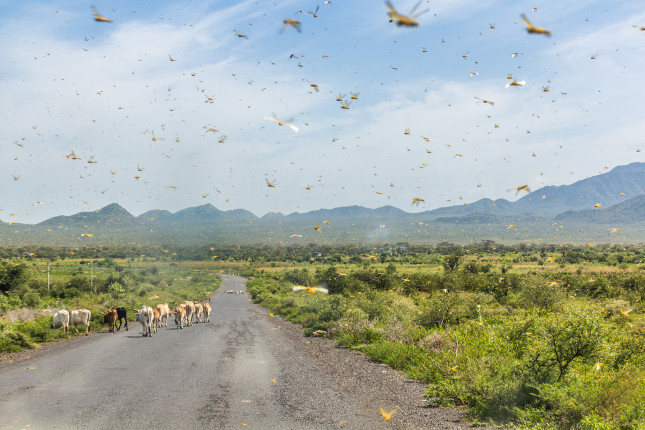-
Why We Need a Climate Security Course-Correction for Stability in the Sahel
›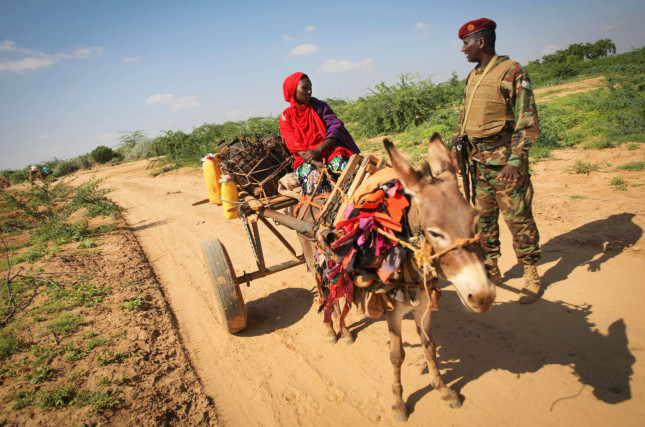
Not only is the Sahel highly vulnerable to the impacts of climate change, but it is also one of the regions where climate change is most likely to undermine security and trigger violent conflict. Now more than ever, climate security risks must be effectively integrated into stabilisation and peace operations in order to achieve stability in the region.
-
Pandemic Brings WASH to Rare Inflection Point: Despite Fears of Collapse, Water, Sanitation, and Hygiene Draw Closer to Epic Goal
›
Until 2016, the agrarian residents of east Kenya’s Kitui county had never encountered a water quality monitor like Mary Musenya. Wearing a bright blue company jersey and furnished with sample bottles and plastic trays, the young Kenyan is a water safety officer for FundiFix, a tiny rural water supply service company. She is one of 20 staff who manage 130 pumps, plus pipes and water tanks that serve 82,000 people across a 1,000 square-mile service area in Kitui and Kwale counties.
-
Why Water Conflict is Rising, Especially on the Local Level
›
That future wars will be fought over water, rather than oil, has become something of a truism, particularly with regard to the Middle East. It’s also one that most water experts have refuted time and time and time again. But while this preference for cooperation over conflict may (and emphasis on may) remain true of interstate disputes, this blanket aversion to the ‘water wars’ narrative fails to account for the rash of other water-related hostilities that are erupting across many of the world’s drylands. As neither full-on warfare nor issues that necessarily resonate beyond specific, sometimes isolated areas, these ‘grey zone’ clashes don’t seem to be fully registering in the broader discussion of water conflicts. In failing to adequately account for the volume of localized violence, the world is probably chronically underestimating the extent to which water insecurity is already contributing to conflict.
-
Redesigning Health Systems for Global Health Security
›Africa in Transition // Covid-19 // Guest Contributor // February 22, 2021 // By Uzma Alam, Juliet Nabyonga-Orem, Mohammed Abdulaziz, Ambassador (ret.) Deborah R. Malac, John N. Nkengasong & Dr. Matshidiso R. Moeti
Africa was predicted to be hardest hit by the COVID-19 pandemic, given its poor health systems. However, this outcome has not been the case. Despite the U.S. being the highest spender on health care globally, COVID-19 has shown that its primary care infrastructure is in much need of strengthening. But we should not mistake COVID-19 as the biggest pandemic of our time. If anything, it is only a dry run, with other epidemics brewing on the horizon. Therefore, if the global community is serious about epidemic preparedness, global health security, and protecting the most vulnerable, we need to redesign health systems for resilience. Africa’s lessons from the COVID-19 pandemic, as well as from concurrent outbreaks of cholera, Ebola virus disease, yellow fever, and chikungunya, could provide a roadmap.
-
The Top 5 Posts of August 2020
›
As Beijing prepares to host the 2022 Winter Olympics, China’s environmental activities are once again on center stage. The Wilson Center’s China Environment Forum took the top spot this month with Karen Mancl and Richard Liu’s coverage of the new program report, “Closing the Loop on China’s Water Pollution,” which details what China can learn from New York, Washington, D.C., and Singapore, to advance its wastewater and carbon reduction targets.
-
Better Governance Needed to Overcome Africa’s Resource Curse
›
“Africa, as you all know, is one of the most resource-rich regions of the world,” said Cyril Obi, Program Director of the African Peacebuilding Network at the Social Science Research Council. “But many observers have noted that in spite of all this natural wealth, Africa seems to have quite a substantial proportion of its population living under poverty.” He spoke at a recent Wilson Center Africa Program event that examined the relationship between natural resources, sustainable development, and peace in Africa. How do you explain a continent rich with natural resources where so many people live in poverty, he asked.
-
Improve Biodiversity Conservation, Enhance Public Health and Food Security
›
Our collective development objectives will not be achieved if they come at the expense of biodiversity and natural resource management, said Jeff Haeni, Acting Deputy Assistant Administrator in the Bureau for Economic Growth, Education, and Environment at USAID. He spoke at a recent Wilson Center virtual event, co-hosted with USAID, that explored the links between conservation and public health with examples from USAID’s BRIDGE project, which aims to build the evidence base for integrating biodiversity conservation considerations into policy discussions and decision-making across sectors. “The ability of societies around the world to develop and thrive is dependent on the health of the forests, fisheries, and natural systems around them,” he said.
-
A Plague of Ravenous Locusts Descends on East Africa, Jeopardizes Food Security
›May 18, 2020 // By Wania Yad
Weeks before most of the world began to take the spread of COVID-19 seriously, Africa was already threatened by another plague, the biggest locust outbreak in the last 70 years. Locusts swarmed into Ethiopia, Kenya, Somalia, Uganda, and South Sudan in January and February this year. Those hordes of voracious locusts laid eggs, and now the second wave, 20 times the size of the first group, is arriving. According to Locust Watch, “The current situation in East Africa remains extremely alarming as more swarms form and mature in northern and central Kenya, southern Ethiopia, and probably in Somalia.”
Showing posts from category Africa.


